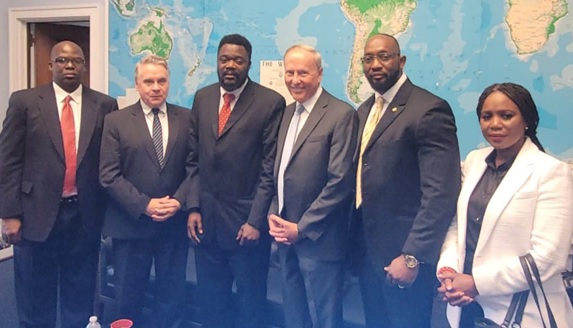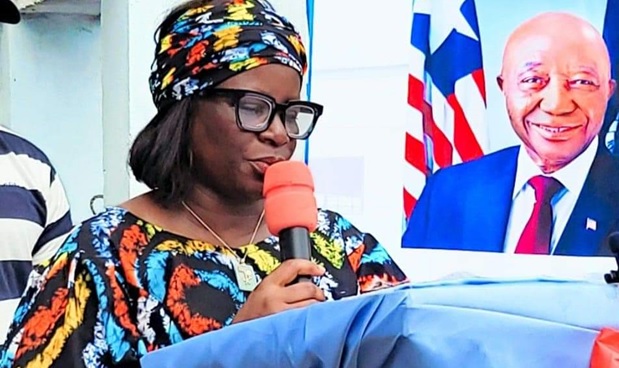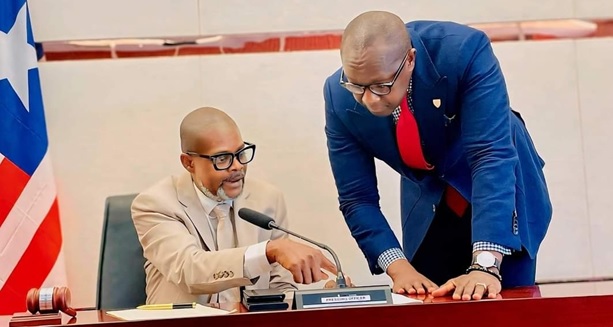MONROVIA – On Thursday, June 13, 2024, a significant hearing on war and economic crimes committed during the Liberian civil crisis took place in the United States. The Tom Lantos Human Rights Commission convened to hear testimonies from experts and witnesses regarding the Liberian crisis. Chaired by US Congressman Christopher Smith, the hearing aimed to shed light on the impact of the country’s civil wars on its people and economy, as well as discuss the establishment of a War and Economic Crimes Court.
Among the witnesses who appeared before the commission were Dr. Alan White, Alvin Smith, and others. The hearing, which took place at 10:30 am in the 2360 Rayburn House Office Building, was attended by various members of the US Congress.
In his testimony, Dr. Alan White emphasized that the War and Economic Crimes Court will have jurisdiction over cases from 1979 to 2023. He commended President Boakai for his courage in announcing the establishment of the court. This significant step towards justice and accountability follows President Boakai’s Executive Order signed on May 2, which led to the creation of the Office of a War and Economic Crimes Court.
Furthermore, Dr. White noted that the court, if established, will not only investigate and hear cases recommended in the TRC report. The court will also address cases from the April 14, 1979 Rice riot, as well as corruption and killings that took place during the George Weah era.
The hearing served as an important platform for addressing the atrocities committed during the Liberian civil crisis. It is hoped that through the establishment of the War and Economic Crimes Court, those responsible for war crimes and economic exploitation will be held accountable, providing a path towards healing and reconciliation for the Liberian people.
Additional Information:
The Liberian civil wars, which spanned from 1989 to 2003, resulted in the deaths of approximately 250,000 people and displaced millions more. The conflicts were marked by widespread atrocities, including massacres, sexual violence, and the recruitment of child soldiers. The economic ramifications were equally devastating, crippling the country’s infrastructure and economy.
The Truth and Reconciliation Commission (TRC) of Liberia, established in 2005, documented numerous human rights abuses and recommended the establishment of a War and Economic Crimes Court. However, the implementation of this recommendation has faced numerous challenges over the years, including political resistance and concerns over stability.
President Boakai’s recent actions to establish the court represent a significant shift in the country’s approach to justice and accountability. His Executive Order has been seen as a bold move towards addressing past crimes and ensuring that such atrocities do not occur again.
The hearing by the Tom Lantos Human Rights Commission is part of a broader effort by the international community to support Liberia’s pursuit of justice. It underscores the importance of international cooperation in addressing human rights abuses and promoting the rule of law.
The testimonies provided during the hearing highlight the ongoing need for justice for the victims of the Liberian civil wars. They also stress the importance of holding those responsible for economic crimes accountable, as corruption and exploitation have had long-lasting effects on the country’s development.
As the process to establish the War and Economic Crimes Court moves forward, it will be crucial for the Liberian government to ensure that the court is independent, impartial, and capable of delivering justice. This will require not only political will but also support from the international community in terms of funding and technical assistance.
The establishment of the War and Economic Crimes Court has the potential to be a transformative moment for Liberia. It offers an opportunity to address past wrongs, promote reconciliation, and build a foundation for a more just and stable future. The outcomes of this process will be closely watched by both Liberians and the international community.







